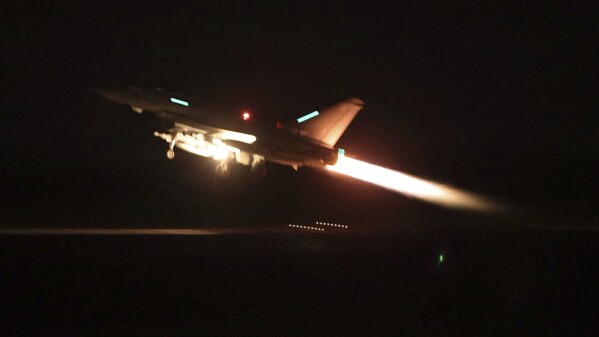The U.S. military has launched a series of strikes against the Iranian-backed Houthi group in Yemen, targeting 15 locations in an effort to protect maritime navigation in the Red Sea, the Pentagon announced Thursday.

Using a combination of aircraft and warships, the attacks targeted Houthi weapons systems, bases, and other military equipment. The U.S. Central Command, which oversees operations in the Middle East, confirmed the strikes in a statement.
“These precision strikes are aimed at degrading Houthi capabilities used to threaten global commerce,” said a senior U.S. defense official, speaking on condition of anonymity.
Explosions were reported in several major Yemeni cities, including the capital Sanaa, according to local media sources aligned with the Houthi movement.
The strikes come in response to a series of Houthi attacks on shipping in the Red Sea since November, which have targeted approximately 100 vessels and resulted in the sinking of two ships. The Houthis claim these actions are retaliation for Israel’s military campaign in Gaza.

Tensions in the region have escalated in recent days. On Monday, the Houthis reported shooting down a U.S.-made MQ-9 Reaper drone over Yemen, a loss acknowledged by the U.S. military. Last week, the Pentagon reported a “complex attack” by Houthis on U.S. Navy ships, though all launched weapons were intercepted.
The conflict has broader implications for regional stability and global trade. Earlier this year, the U.S., UK, and 12 other nations launched Operation Prosperity Guardian to safeguard Red Sea shipping lanes against Houthi threats.
“This operation demonstrates our commitment to freedom of navigation and the security of our allies in the region,” said U.S. Secretary of State Antony Blinken in a statement following the strikes.
The Houthis, part of a network of Iranian-backed armed groups in the Middle East, have also directly targeted Israel in recent months. In July, a drone launched from Yemen struck Tel Aviv, while multiple missiles were fired at Israel’s main airport in December.



